| As Spring blooms fully at Springwater, we celebrate pollinators at work! The students are noticing the diversity of pollinators that flit from flower to flower in our garden. During garden class, K-2nd graders study the value of pollinators in providing the fruits and vegetables they enjoy eating, as well as learn how to provide habitat for the variety of insects and birds. The 7th grade students are beginning a new study of the mason bees in the school's Pollinator Garden and have taken the lead in valuing, observing, and recording the bee species at work. The students find joy in emerging mason bees and are sensitive to the weather changes that affect the pollinator's work. We have even see student-built mason bee and leaf cutter bee boxes popping up throughout the school grounds. Pollinators really are loved at Springwater! |
|
0 Comments
This year, our school is looking forward to building its committment to native bee habitat. Mason bees are a gentle and hardworking bee species that will be a great learning tool for Springwater students. And we can help them by providing habitat in our lush Pollinator Garden. We are looking forward to the development of a Capstone mason bee project from one of our 8th graders this year. The student will be installing mason bees homes in various sites around the school and comparing their success and growth rates. Additionally, we have developed a relationship with Northwest Pollinators, a company who promotes mason bees for commercial growers, rather than honeybees. We'll be hosting their mason bees this year and looking forward to the great educational opportunities this relationship has to offer.
The Springwater Garden Program is proud to be a part of the Million Pollinator Garden Challenge hosted by The National Pollinator Garden Network.
http://millionpollinatorgardens.org/
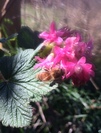 It's December 2014 and the CCSWCD and the Springwater Garden has hosted a Pollinator Planting Day. Each class participated in planting native plants for the garden; from red flowering current, white oaks, blue elderberries, to a variety of sedges. All of these plants will provide food forage and homes for different pollinators. We expect to see hundreds of native bee, moths, and fly pollinators, as well as bats and bird pollinators. With this new natural learning lab and classroom, students will be able to expand their garden and science education. In gardening classes, students will be building structures for pollinator habitat, participating in pollinator surveys and counting, and learning native plant propagation. Keep your eyes out for future student projects and education pieces about the importance of native pollinators. A final thank for to Clackamas County Soil & Water Conservation District for providing this amazing space and for all their support. 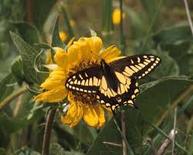 Beginning this spring and summer, Springwater students and families will see the front entrance of the school begin to change. Insect hotels will be erected, the ground will be mulched and composted, pathways will be shaped, and pollinator habitat structures will be built. Over the course of the year, the landscape will alter into a beautiful pollinator garden and learning center. Springwater is partnering with the Clackamas County Soil and Water Conservation District to develop this area into a refuge and home for native pollinators. With their generous support of $10,000 and the aid of planner Erik Carr, the Springwater garden program will be incorporating this project into the springtime pollinator lessons for the K-1st grade classes. Students will study the plants, colors, shapes, and habitat for local pollinators and, come fall, will participate in the planting aspect of the project. This idea began from a concern by myself, Kaci Rae, in noticing the need for native pollinator habitat to help the newly developed Springwater garden. I reached out to Erik Carr at the CCSWCD, and began to meet with him to discuss the potential for developing a pollinator space at the school, in order to provide habitat and to create an education space for the students and families. I am positive that this new space will fit in perfectly with the goals of Springwater. It will provide new environmental and science lessons for all the classes, it will beautify the school grounds, and it will be a refuge for the struggling populations of certain native pollinators. The area is to the left of the school entrance, surrounding the existing Springwater sign. There will be an informational sign that students will help design, and a variety of habitat structures: bee/bird boxes, log rounds for habitat structure, insect hotels, basalt water basins, and more. While CCSWCD is providing the funding and planning support of this project, Springwater has been asked to provide the maintenance and care of the new space. If you are interested in gardening with flowers or would like to know more about pollinators and habitat building, please contact me at[email protected]. Any and all support of this project would be wonderful! |
Archives
May 2017
Categories |
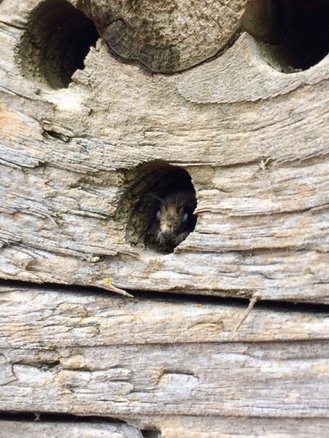
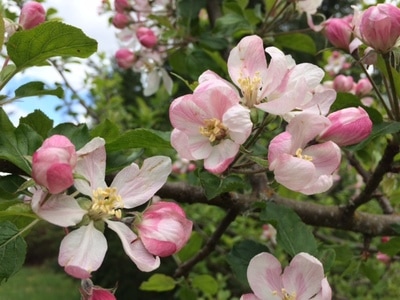
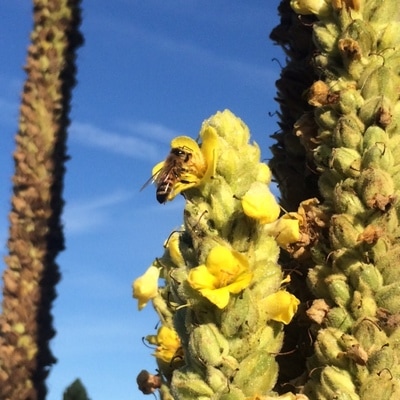
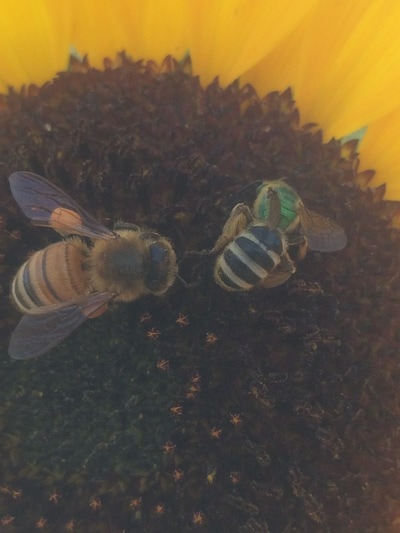
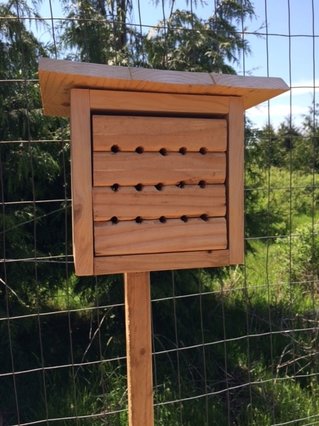
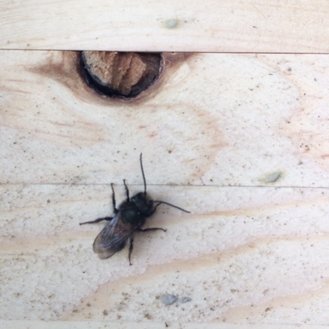
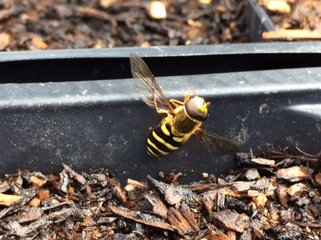
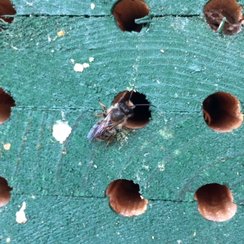
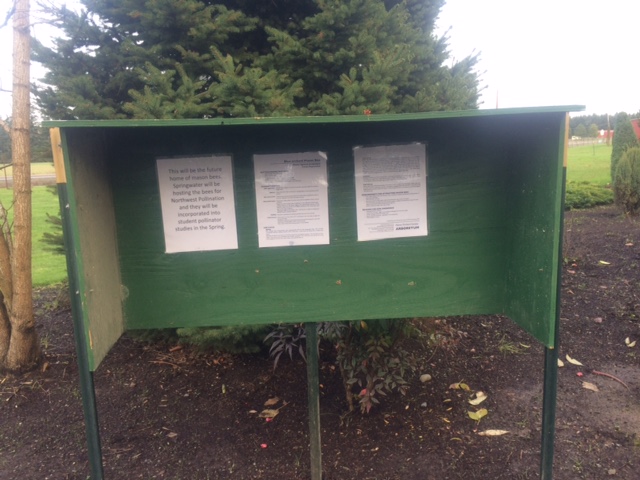
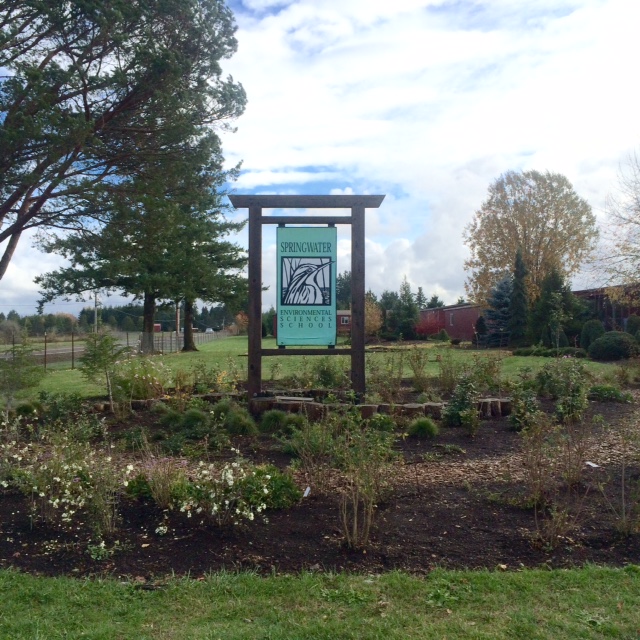
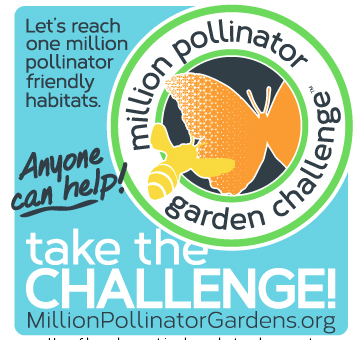
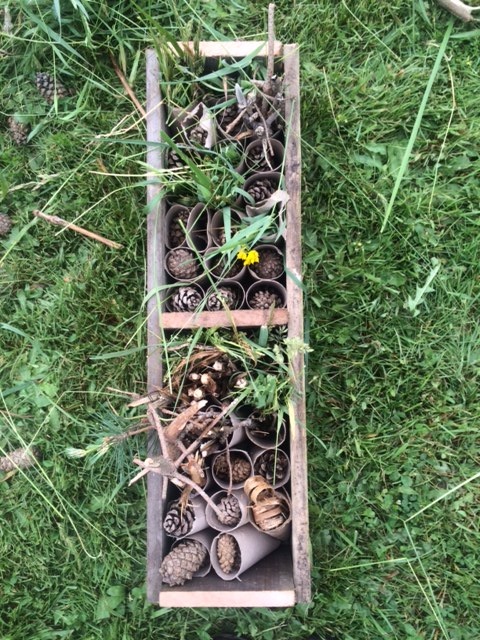
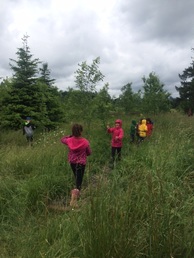
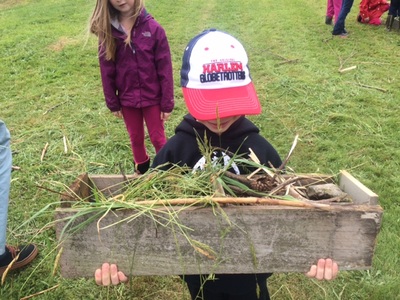
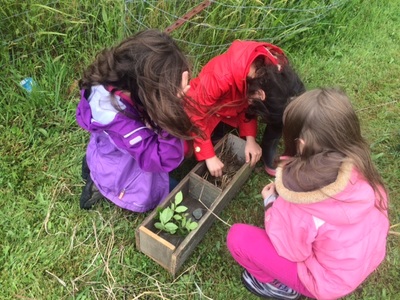
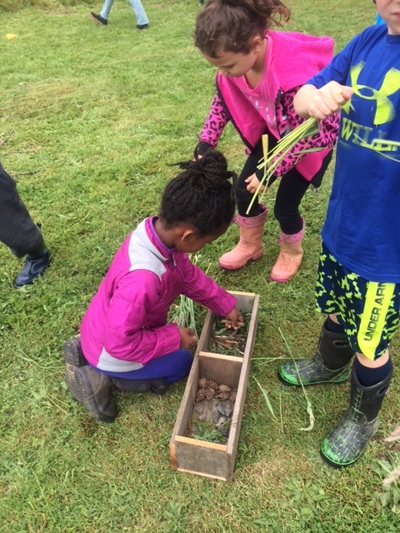
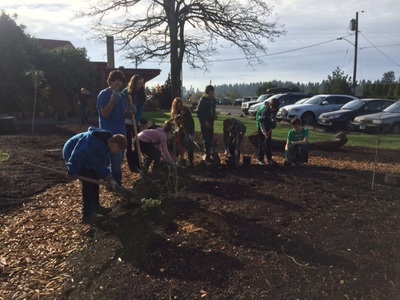
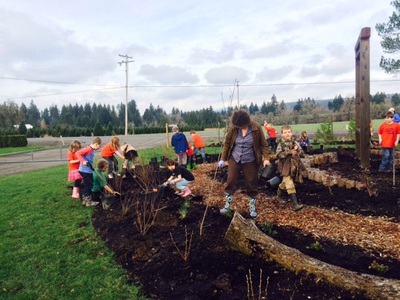
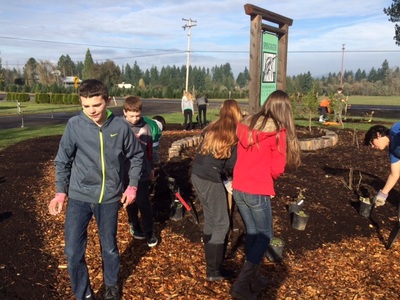
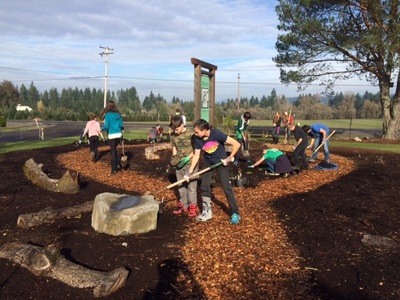
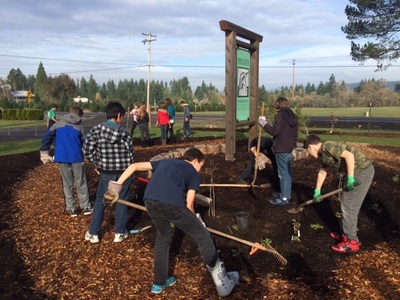
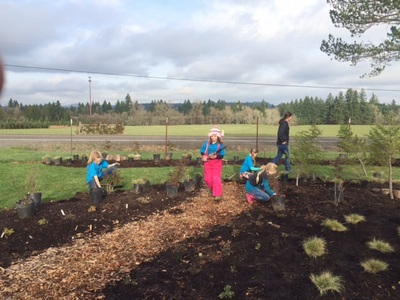
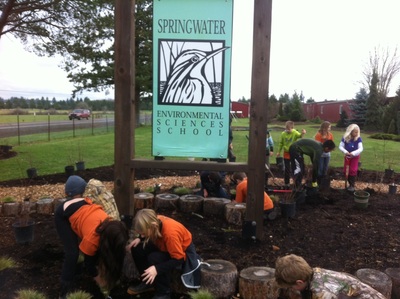
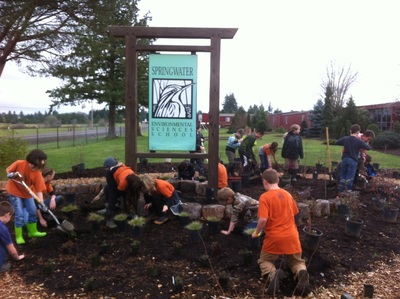
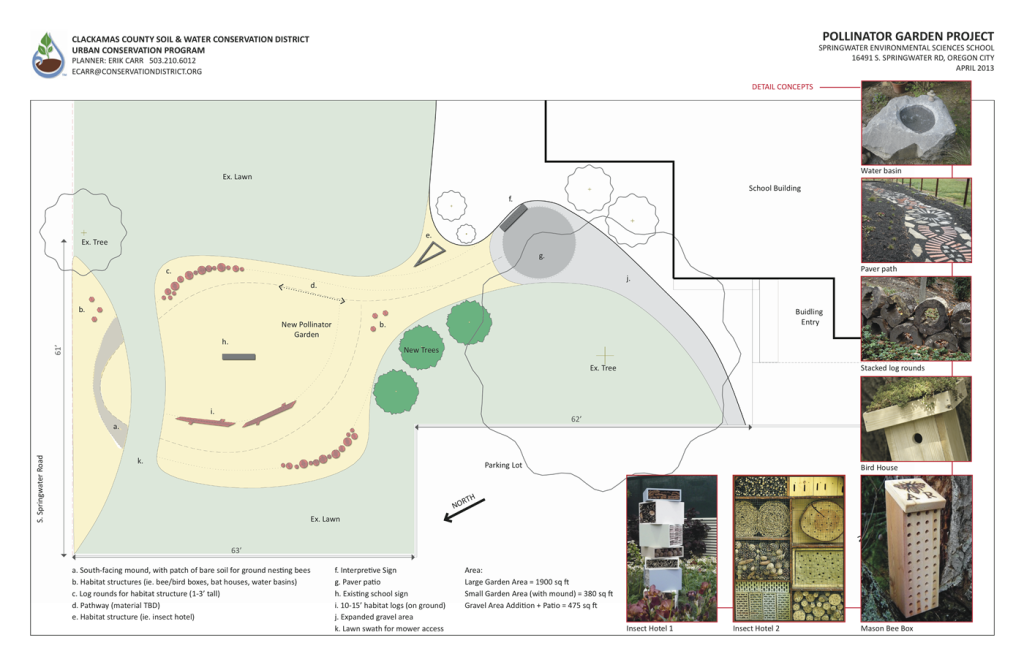
 RSS Feed
RSS Feed
